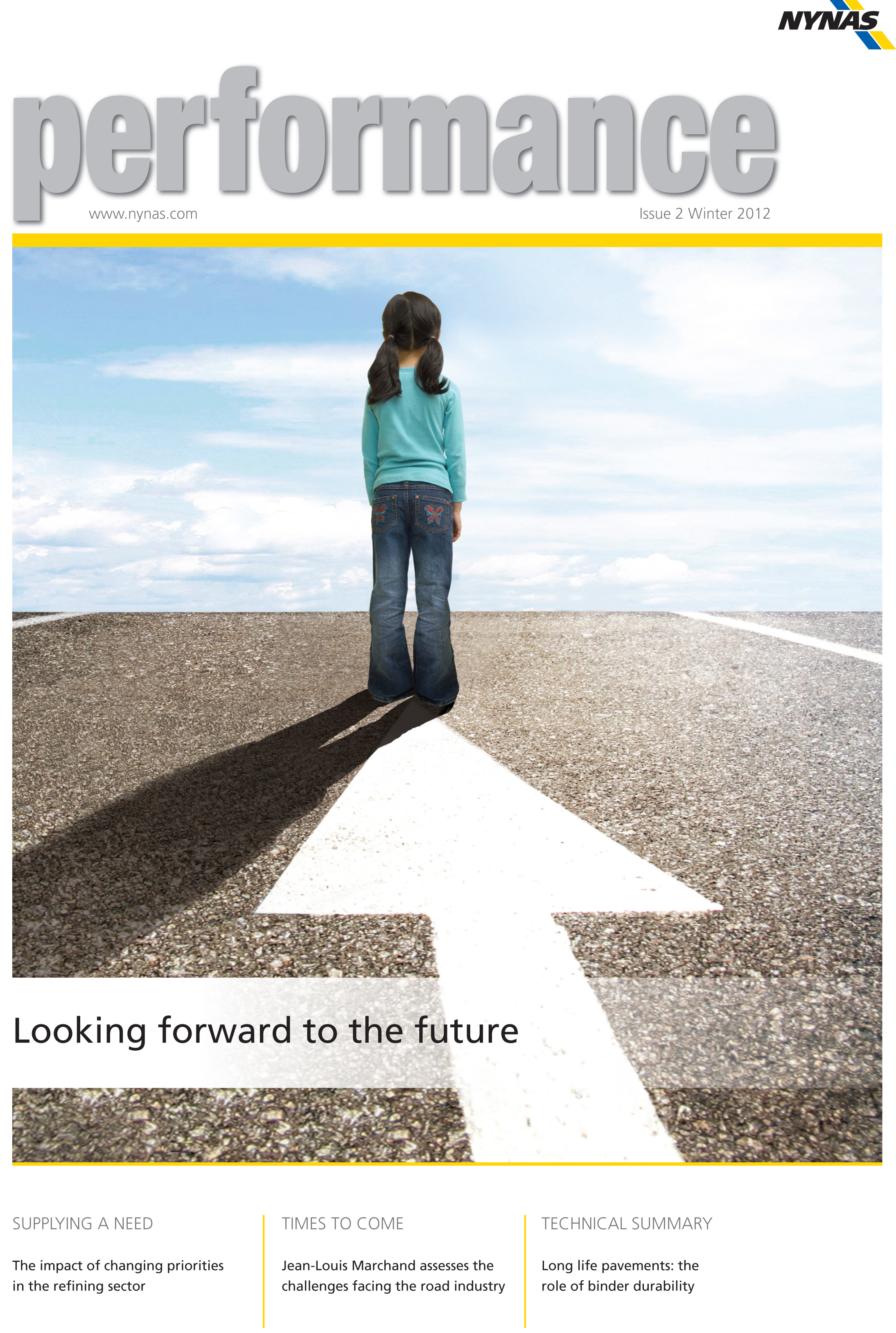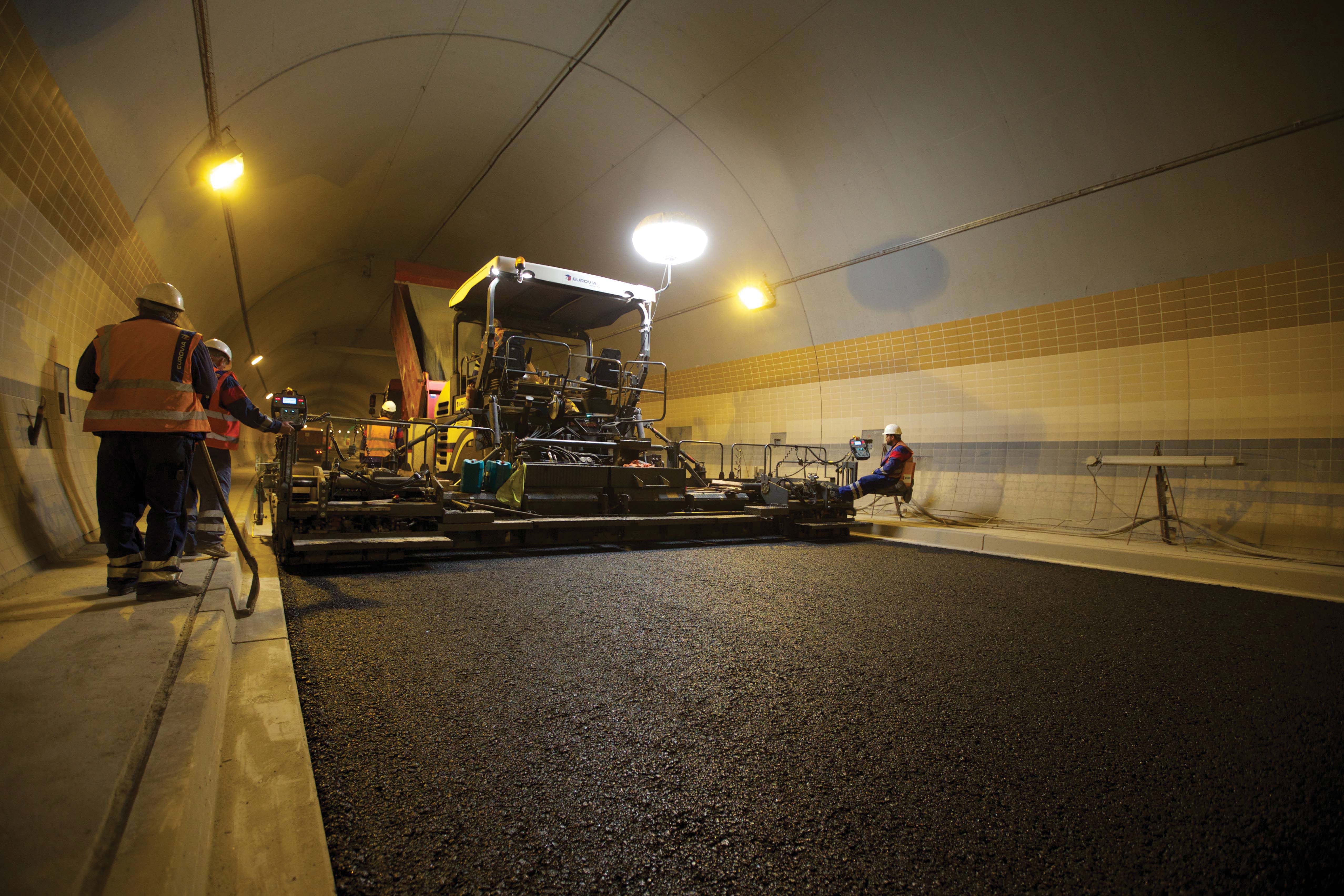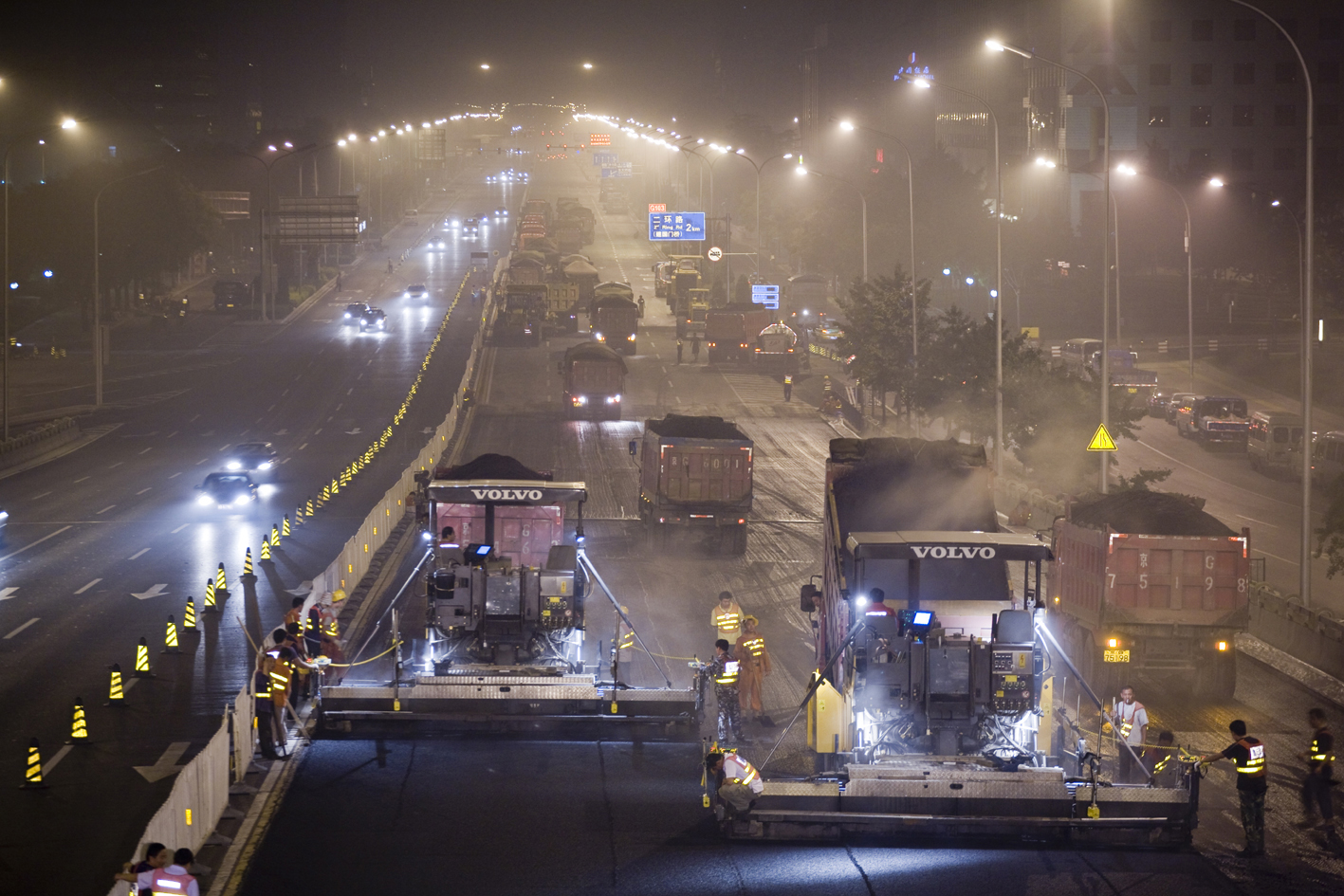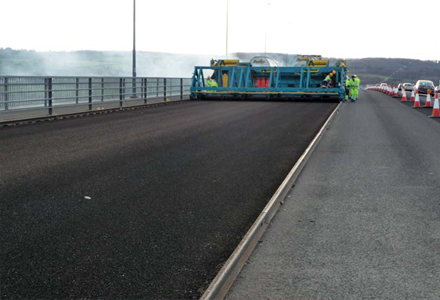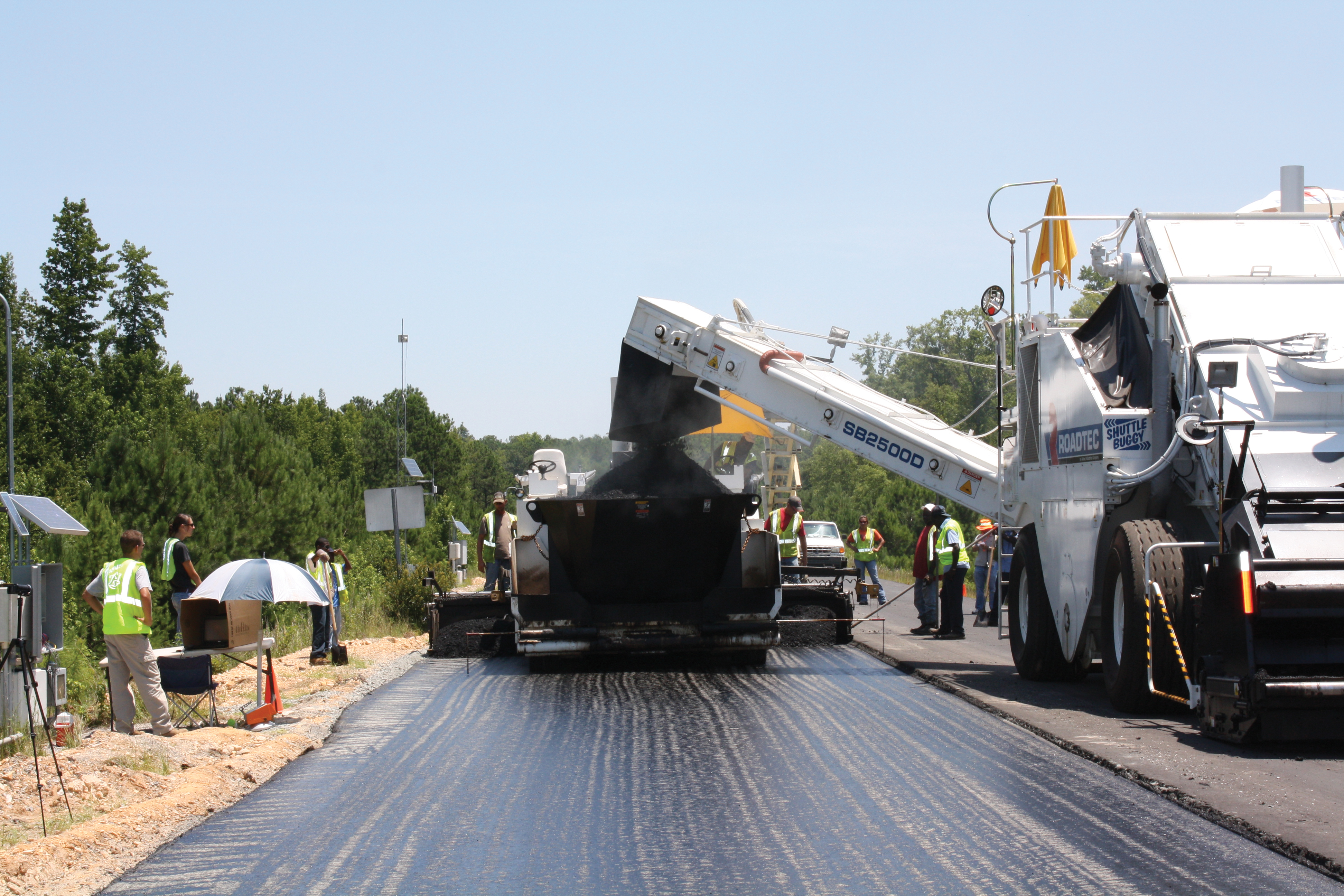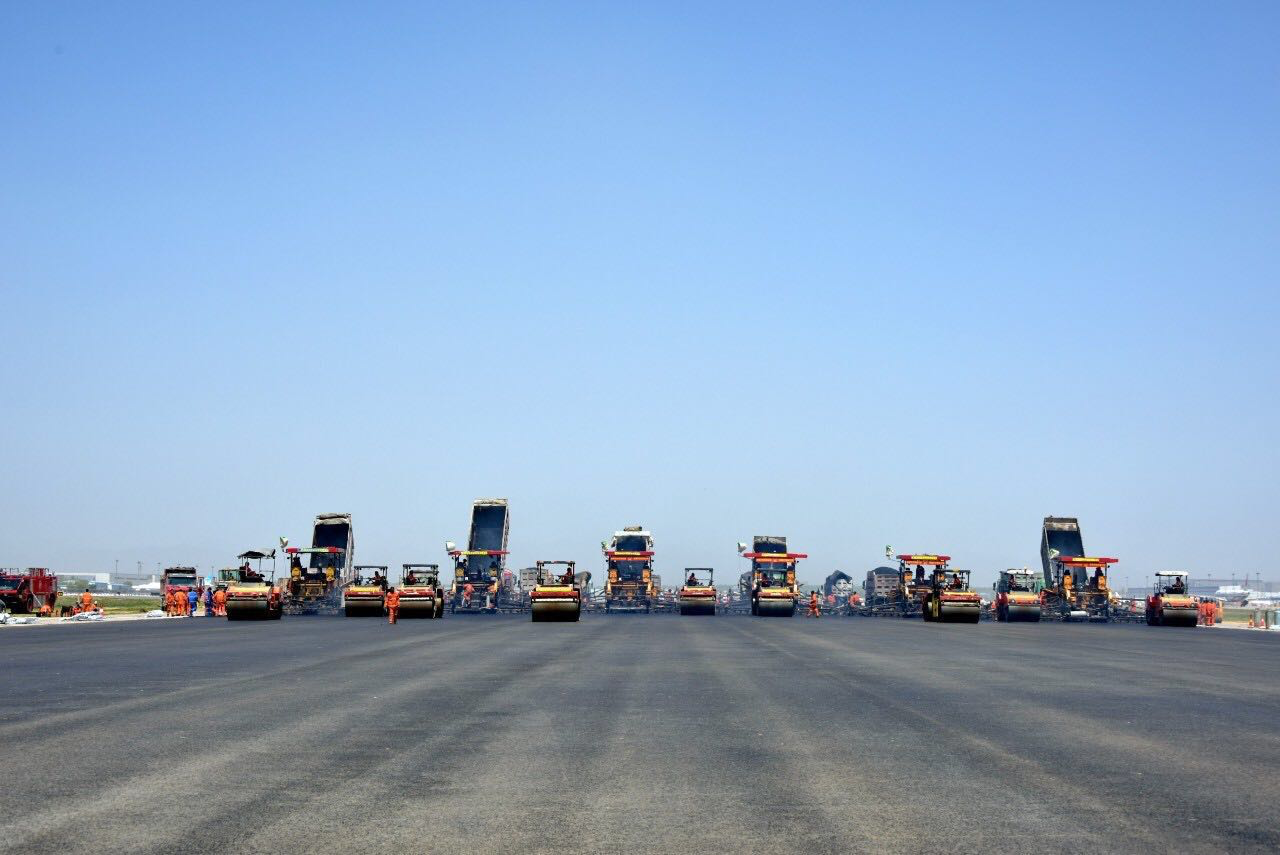
Beijing ranks amongst the five busiest airports across the globe and its runway surfaces face tough stresses as a result
Over 94 million passengers flew through Beijing Capital Airport (BCA) in 2016 and as many as 70 flights/hour can take off and land during peak times. The 60m-wide middle runway of Beijing Capital International Airport is the busiest of the three runways, with a landing and take-off flight ratio of up to 40%. This runway was first rehabilitated in 1996 and then repaired in 2013 and 2015 to address damaged areas. However in April 2017 major rehabilitation work was carried out, which included pavement milling, paving and light installing. The construction area consisted of 130,000m2 of runway and 70,000m2 of taxiway for a total construction area of 200,000m2.
Paving and maintaining an airport runway is never easy. The ageing issues of most concern are block cracking and fatigue cracking so
Chinese contractor Beijing Sino-Aero Construction Engineering (BSACE) worked with Evotherm to select the right technology for the project. When searching for a product, the focus was maximising compaction and consistency of the mix due to the stiff and difficult-to-compact mixture types on the runway.
Yifan Yang, technical services at Ingevity in China said, “This project lasted for four weeks in April. It required speed in daytime and night-time paving, so that the least amount of disruption to BCA’s traffic occurred.”
“Evotherm was chosen particularly because of the materials used in this project,” said Lennon Dong, structural technical management for Ingevity in China. He said that the airport mixtures resulted in Marshall stability over 14kN at 60˚C, along with rutting resistance of over 10,000 passes/mm when measured with the Chinese wheel rut test. The bottom course applied by BSACE contained a high concentration SBS and an anti-rutting agent, and the wearing course mix was a polymer modified stone matrix asphalt (SMA) mixture with a high concentration SBS, an anti-rutting agent and glass fibre additives.
BSACE had two mix plants set up for the project and Evotherm was added as the tank trucks were unloaded. The runway’s pavement structure consisted of about 50mm of warm SMA surface layer, another 60mm of warm dense-graded middle layer mixture, and 80mm of modified WMA mixture for the bottom layer.
The HMA production temperature reduction allowed the workability of the high viscosity and stiff asphalt mixture used on runway pavement to be improved. Compaction aids were utilised to better cope with the night construction conditions to optimise performance. The technology and methods used allowed for improved adhesion between the asphalt binder and aggregates as well as increasing resistance to water damage. The use of a lower production temperature meanwhile helped to limit binder ageing and improve overall durability. The Evotherm additive was easy to use as it can be added to the asphalt as the asphalt tank trucks are being loaded, while there was no need for any changes to the plant. Production temperatures for the asphalt ranged from 175-185˚C, with paving temperatures from 165-175˚C and compaction temperatures from 150-165˚C.
“Evotherm provided many benefits on this runway project,” said Merlin Zhou, technical marketing management with Ingevity in China. “We saw significant improvement in the workability of high viscosity and stiff asphalt mixtures typically used on runway pavements. We also encountered windy conditions during night paving and found the Evotherm helped greatly with compaction despite the windy conditions.” As an added bonus, BSACE completed the project three days earlier than expected.



